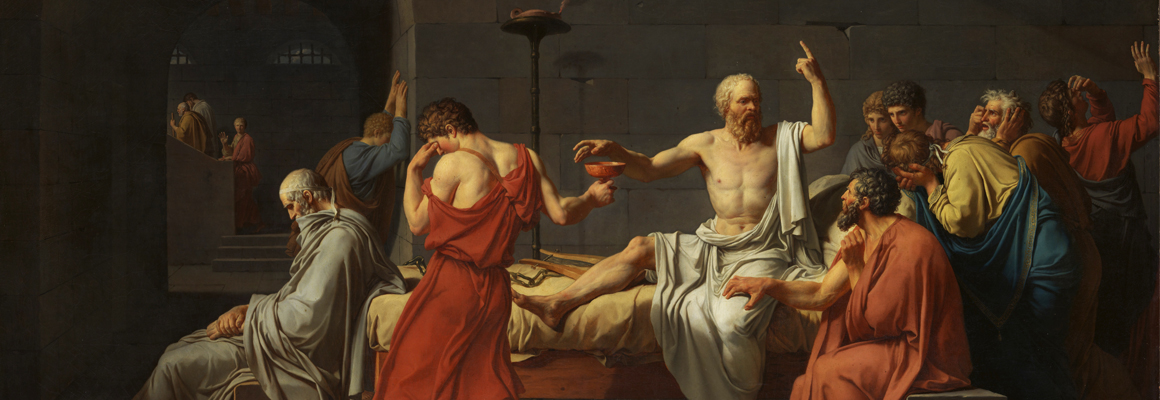
THE DEATH OF SOCRATES AND OTHER MYTHS
It is a sad fact that the death of the fabled Greek philosopher Socrates has been hijacked by the Physician Assisted Dying (PAS) lobby. While Socrates did indeed take his own life, it was as a sentence imposed upon him for crimes, and not as an escape from ill-health.
Born in Athens around 470 BC, Socrates was a major figure in the development of Western philosophy. Renowned for his dialectical method and relentless questioning, he roamed the streets engaging in discussions with fellow citizens, challenging their beliefs, and exposing contradictions in their arguments. However, his relentless pursuit of truth and his unyielding commitment to his principles ultimately led to his downfall. He was eventually arrested on charges of impiety and corrupting the youth of Athens. Found guilty after a trial, he was sentenced to death by means of what could be termed Involuntary Euthanasia, or put more simply forced suicide. In accordance with the sentence, he ingested poison from the plant hemlock the following day and died.
Socrates’ death has often been romanticized in paintings, such as Jacques-Louis David’s The Death of Socrates (1787). However, the annals of history are littered with individuals who died for their beliefs. Let us not forget the countless Christians who marched into the bloody arenas of Ancient Rome, or the bravery of Joan of Arc.
Socrates produced no written works during his lifetime, and all we know of him is through the third-party accounts of his students, like Plato and Xenophon.
When British journalist and activist Derek Humphry was searching for a name to call a new Pro-Euthanasia group in 1980, his thoughts turned to Socrates, and the Hemlock Society was born. Since then, Socrates has become something of an icon for the Assisted Dying lobby. In reality, they may have been wiser focussing on someone who had voluntarily chosen to end their own life, such as Cleopatra or Ernest Hemingway.



